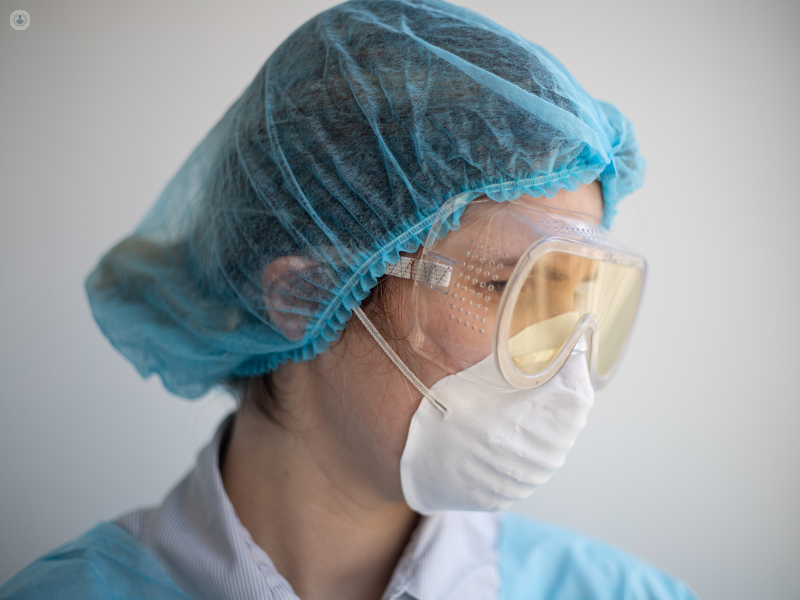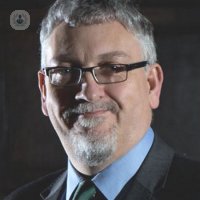COVID-19 how healthcare professionals cope PTSD
Escrito por:As we’ve come to understand, medical staff aren't just facing a life-threatening virus, many will have their own personal fears and difficulties to face too: The inability to save patients, a fear of infection and getting sick, hearing of co-workers dying and a feeling of helplessness could all amount to deep emotional trauma and develop into conditions like PTSD.
After discussing with us the risk of healthcare professionals developing mental health conditions, Professor Ben Green, a psychiatrist from Liverpool shares with us some tips as to how doctors, nurses and every medical personnel on the frontline can better cope during this period and what support and treatment are available.

How can healthcare professionals better cope during this period?
As we know, PTSD often results in situations where people feel they are facing an inescapable or overwhelming threat. Therefore, the nature of the coronavirus threat is such that the general media has focussed very much on threat and risk, partially to persuade the public to comply with social distancing and other preventative measures.
The human mind tends to focus on a threat to minimise risk, but obsessive focus can lead to psychiatric harm.
For instance, if we look at our study on needlestick injury in healthcare workers, some individuals were unable to dismiss the risk of contracting a viral illness from needlestick injuries, even though the risk of actual seroconversion was 1/3600. This resulted in months of adjustment disorder with poor sleep, irritability, tearfulness and so on, until a final blood test indicated that they had not and would not seroconvert (contract a virus).
Although it might not be altogether practical at this time, it would assist health workers to manage their own perception of personal risk from the COVID-19 crisis, and would be especially helpful if there were media focus on:
- any effective treatments with probabilities of recovery (not death) or imminence of the same
- any effective test to determine recovery and antibody status
- sufficient personal protective equipment (PPE) and reassurance of supply
- survivor stories
Furthermore, managers of health services also have a responsibility to ensure that staff are protected from harm. To do this, they could:
- implement sufficient personal protective equipment (PPE) and reassurance of supply
- implement resilience training
- ensure staff receive adequate breaks from duty
- ensure staff received adequate time to rest and arrange well-being interventions if otherwise
- ensure work limits
- reduce any perceived risk
- ensure adequate opportunities for nutrition and sunlight (doctors and nurses have a higher prevalence of vitamin D deficiency)
- praise staff positive actions and for the achievement of reasonable targets
- preserve a sense of appropriate humour
- continue good staff communication
- rotate tasks
- ensure staff feel in control
- enable staff to meet in groups to set achievable goals, swap coping mechanisms, good practice and share about their experience, if they wish to
Healthcare personnel could also implement the following to look after themselves:
- set themselves realistic goals at work and actively think of things to look forward to in their own time
- reframe situations to other staff and patients in positive terms give praise to others
- signal if work is excessive or unduly stressful
- use breaks for rest and appropriate recreation
- report wellbeing problems and seek help
- avoid all use of any potentially addictive substance – tobacco, alcohol, cannabis, etc.
- Reduce or avoid the use of caffeine
- Discuss ethical decisions with defence organisations and other professionals/patients/relatives, consult codes of practice and review professional oaths e.g. GMC, modern Hippocratic Oaths (Green, 2017)
What sort of treatment do you offer for PTSD?
Practical measures may sometimes produce as much recovery as psychological treatments. In needlestick patients with adjustment disorder, after months of anxiety about infection, the reassurance provided by definitive testing heralded the end of their adjustment disorder. Similarly, stress due to anxiety about coronavirus infection might be limited by the knowledge of personal coronavirus antibody status or limited by the provision of adequate PPE.
For formal PTSD or depression, psychotherapy is often perceived as the treatment of choice by the public. Certainly, there is a research base of trauma focussed CBT, EMDR and standard mood-enhancing CBT. But, psychological therapy is not for everyone and even in studies that promote its use, there are significant drop-out rates due to distress and other adverse effects.
More PTSD patients have been researched using antidepressant therapy than psychotherapy, and they are effective in PTSD, particularly in restoring sleep and mood.
Combined strategies using both pharmacotherapy and psychotherapy are necessary for more severe cases. Rehabilitation strategies to return avoidant patients to the workplace need careful managing to prevent relapse through further traumatisation. Appropriate timing of a sufficiently graded return, under a sympathetic employer, is vital.
For 'difficult to treat' persistent cases, advanced antidepressant strategies incorporating mood stabilisers, ECT, quetiapine or prazosin may be required (Green, 2013).
To make an appointment or book an e-Consultation with Professor Ben Green, visit his Top Doctors profile and check his availability.


